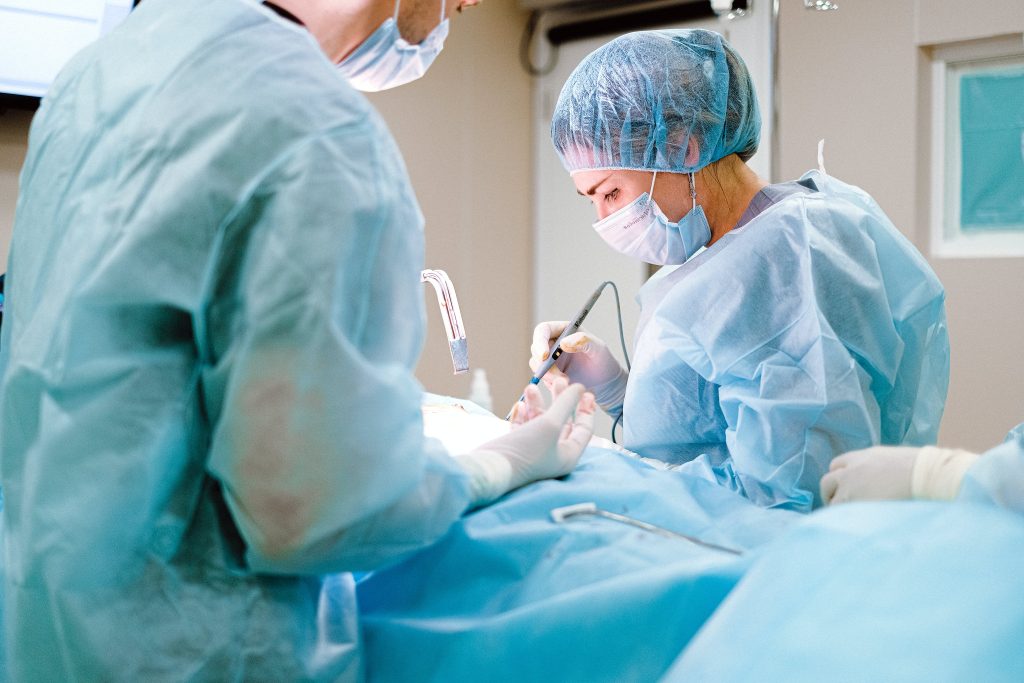Parotidectomy Surgery
Parotidectomy Surgery: Understanding the Procedure and Types
Parotidectomy surgery is a complex procedure involving the removal of the parotid gland, which is the largest salivary gland located near the ear. This surgical intervention is essential for various medical conditions, including tumors, infections, and chronic inflammation. In this comprehensive guide, we will explore what parotidectomy surgery entails, its types, and important considerations.
1.What Is Parotidectomy Surgery About?
Parotidectomy is a surgical procedure performed to remove all or part of the parotid gland. The parotid gland plays a crucial role in producing saliva, which aids in digestion and oral health. However, when conditions such as tumors or chronic infections affect the parotid gland, surgery may be necessary to alleviate symptoms, prevent complications, and address potential malignancies.

2.What Are the Causes of Parotidectomy Surgery?
Several conditions may necessitate parotidectomy surgery, including:
- Tumors: Both benign (non-cancerous) and malignant (cancerous) tumors can develop within the parotid gland. These tumors may cause pain, facial swelling, or difficulties in eating and speaking.
- Chronic Inflammation: Conditions like chronic parotitis, which involve recurrent inflammation and infections of the parotid gland, may require surgical intervention when conservative treatments are ineffective.
- Infections: Severe infections, especially those that lead to abscess formation within the parotid gland, may require drainage and surgical removal of affected tissue.

3.How Common Is Parotidectomy Surgery?
Parotidectomy surgery is relatively common and is often performed by Ear, Nose, and Throat (ENT) specialists. The prevalence of this procedure varies depending on factors such as geographic location and patient demographics. Malignant tumors of the parotid gland are less common but may necessitate more extensive surgery.
4.What Can an ENT Specialist Do for You?
Consulting with an ENT specialist is the crucial first step for individuals facing parotid gland issues. An ENT specialist can provide the following services:
The specialist will assess your medical history, symptoms, and perform diagnostic tests such as imaging studies to determine the nature and extent of the condition.
Based on the evaluation, the specialist will develop a tailored treatment plan. This may include surgery, medication, or other interventions, depending on the underlying condition.
ENT specialists possess extensive experience in parotidectomy surgery, ensuring safe and effective results. They also prioritize preserving the facial nerve to maintain facial function.
After surgery, your ENT specialist will provide attentive post-operative care to monitor your recovery, manage potential complications, and optimize outcomes.
5.How Can Parotidectomy Surgery Be Treated?
- Superficial Parotidectomy:
- Indications: Typically performed for benign tumors or chronic parotitis.
- Procedure: The superficial lobe of the parotid gland is removed while preserving facial nerve branches.
- Total Parotidectomy:
- Indications: Recommended for malignant tumors and extensive benign tumors.
- Procedure: The entire parotid gland, including both the superficial and deep lobes, is removed while carefully preserving facial nerve branches.
- Partial Parotidectomy:
- Indications: Performed when the condition is localized within a specific area of the parotid gland.
- Procedure: Only the affected portion of the parotid gland is removed, sparing healthy tissue and facial nerve branches.

6.Guidelines for Parotidectomy Surgery:
Before undergoing parotidectomy surgery, consider the following guidelines:
- Consultation: Schedule a thorough consultation with your ENT specialist to discuss your symptoms, medical history, and treatment options.
- Pre-operative Evaluation: Your surgeon will conduct a comprehensive evaluation, which may include imaging studies, to assess the extent of the condition.
- Surgical Plan: Collaborate with your surgeon to develop a personalized surgical plan that aligns with your specific needs.
- Recovery Planning: Prepare for the post-operative recovery period, including time off work or school and any necessary support.
7.Evaluation & Follow-Up for Treatment:
Regular evaluations and follow-up appointments are essential after parotidectomy surgery. Your surgeon will monitor your progress, address any concerns, and ensure optimal healing. Adherence to post-operative instructions is crucial for a successful outcome.
Risks of Parotidectomy Surgery:
While parotidectomy is generally safe, it carries some inherent risks, including temporary facial weakness, salivary fistulas (abnormal connections), and complications related to anesthesia. Skilled surgeons aim to minimize these risks through meticulous surgical techniques.
Alternatives to Parotidectomy Surgery:
In some cases, alternative treatments may be considered, such as needle aspiration for cysts or fine-needle biopsy for diagnostic purposes. However, the choice of treatment depends on the specific diagnosis and recommendations of your ENT specialist.
For the most up-to-date information and guidance on parotidectomy surgery and related conditions, please visit Nuffield ENT, where leading clinicians in the field of Ear, Nose, and Throat provide comprehensive insights and care.
